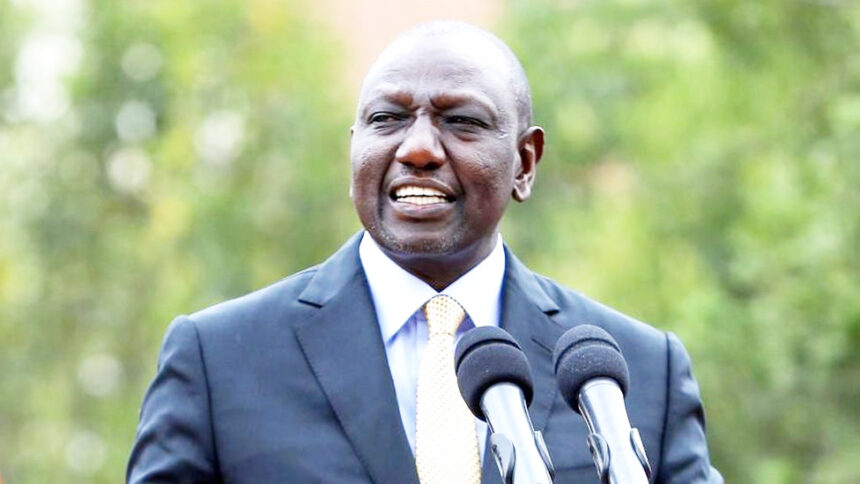NAIROBI – Kenya deployed a heavy police presence Thursday ahead of president William Ruto’s state of the nation speech, which comes as he faces criticism over abductions, corruption and unpopular economic policies.
There were some calls online to protest his speech to parliament. But the energy behind the mass demonstrations between June and August, sparked by proposed tax rises, has petered out. Rights groups say people have been cowed by the violent police response, which saw more than 60 killed during the protests, and dozens of abductions targeting organisers in the following months.
Human Rights Watch said this month that Kenyan security forces “abducted, arbitrarily arrested, tortured and killed perceived leaders of the anti-Finance Bill protests”.
AFP journalists saw that the road to parliament was blocked, with police trucks stationed at key intersections, and no sign of demonstrators.
Ruto is making his third state of the nation address since taking office in 2022 with a pitch to help the country’s poor.
He has forged close ties with Western countries and donors, but his room for manoeuvre has been limited by Kenya’s debt burden, which surpassed US$80 billion this year. Like many African countries, Kenya pays more in interest on that debt than it does for health and education.
His Finance Bill aimed to boost government coffers, but proposed tax hikes on basic items like bread, cooking oil and sanitary pads sparked the protests.
While economic growth has remained relatively strong at 5.4% last year, a third of Kenya’s 52 million people live in poverty. Ruto scrapped the Finance Bill following the protests but has since quietly reintroduced many of its tax hikes through three new bills, including new taxes on the tech sector, which will hit drivers for delivery and ride-hailing apps. In a speech on 1 November, Ruto said Kenya’s development was “overdue by decades” because it had failed to boost tax revenues, highlighting the lack of jobs for the 850 000 young people who enter the labour market each year.
But he faces storm clouds on multiple fronts.
The Catholic Church, traditionally seen as close to Kenyan power, issued a scathing statement last week against Ruto’s administration, focused on the abductions, cost-of-living crisis and corruption.
Recent weeks have seen international condemnation over the forced extradition of foreign nationals kidnapped on Kenyan soil, including four Turkish refugees and Ugandan opposition leader Kizza Besigye. There is also controversy around the bungled launch of a new health insurance scheme, leading to patients being denied care.
And there have been protests after secretive plans were revealed for India’s Adani Group to take over the country’s main airport for 30 years.
Ruto says Adani’s planned US$1.85-billion investment in Jomo Kenyatta International Airport was vital to its modernisation, but his case will not have been helped by news on Wednesday that the group’s founder Gautam Adani has been charged in the United States with massive bribery and fraud. – Nampa/AFP


